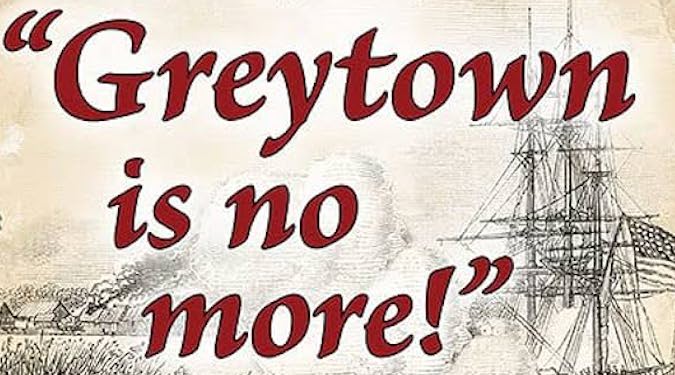I have read Tyler Smotherman’s review of my book, Greytown Is No More!
I am much buoyed by the many positive passages to be found throughout its 17 pages. I wish to thank the reviewer, Tyler Smotherman, JNSLP Managing Editor Todd Huntley, and Editor-in-Chief William C. Banks for their efforts.
I would like to take issue, however, with three points the review makes, two major and one minor.
In this, the minor point, the reviewer is characterized in the introduction as “concluding that Soper goes too far in his appraisal of the case’s influence.” In my defense, I’ll quote the reviewer himself when he writes: “Many legal scholars call Durand ‘the most commonly cited authority for [the] assertion’ that the President has unilateral authority ‘to direct rescue and retaliation operations.’”
Now, regarding the first major point, Mr. Smotherman contends that the government’s insult-avenging explanation for the razing is “technically correct.” And, yet, he conceded, just three paragraphs earlier, that I make a “compelling case that private commercial interests lobbied the highest levels of American government to destroy Greytown for economic gain.” There seems a disconnect here, although it may be a matter of degree. Let’s just say I contend that I make a compelling enough case that the official explanation has been rendered incorrect.
As to the second major point, I quote from Mr. Smotherman: “Soper never argues why his version of the facts ought to lead to a different legal conclusion or how it destroys Durand’s precedential value.”
Six and a half years ago, I discussed, by email, my take on Durand with JNSLP Editor Bill Banks, on the occasion of my 2017 scholarly journal article’s publication. He wrote in reply:
Thanks for sharing your Greytown piece. It’s marvelous. Peter Raven-Hansen, the two Steves [Dycus and Vladeck] and I are co-authors … and we’ve worked Durand into our books since the first edition in 1990. We recognize its weakness as precedent for the points that pro-executive lawyers have cited it for…. And when I teach the case, I point out that the facts do not line up with the court’s analysis…. I believe that your paper should add to other sources and lead to rejecting the broad reading of Durand as supporting a U.S. law presidential rescue power, absent the need to repel an actual sudden attack on the U.S. or its citizens. I hope that you continue your work and expand on this piece.
I was much motivated by Dr. Banks’ thoughts above when fashioning my narrative. I hoped I could lead my readers to conclude, as I write in my preface, that “Durand … is based on a gross misapprehension of the events attendant and, therefore, on an inappropriate attribution of cause. And this, in turn, should call into question the historical and legal validity of Durand v. Hollins as precedential law.”
Perhaps an historical parallel to my arguments and conclusions might be found in the case of Fred Korematsu, the Japanese American who resisted internment during World War II. His 1944 conviction was overturned four decades later, in 1983, when new evidence challenging the necessity of the Japanese internment was discovered that had been withheld from the courts at the time by the U.S. government. And although the Korematsu precedent wasn’t overturned, it was condemned 35 years later, in 2018, in Trump v. Hawaii, when Chief Justice John Roberts declared: “Korematsu … has been overruled in the court of history.”
Now that I have discovered, 16 decades later, new evidence dismantling the origin story of Durand v. Hollins, I feel the validity of the Durand precedent is worth questioning—to see if it might also be “overruled in the court of history.”

